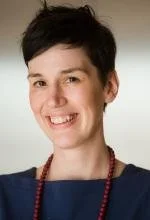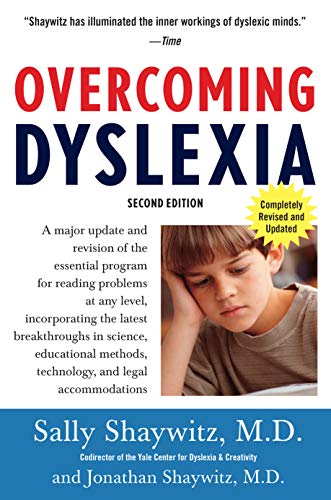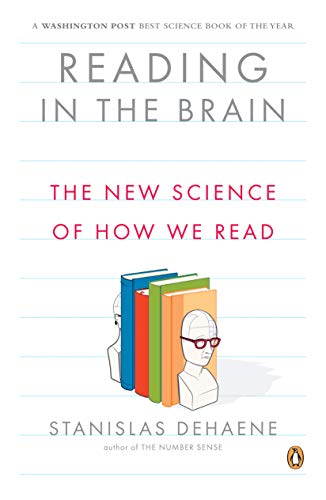Leading Reading Research Scientists
Thankfully, in 2023, there are many excellent researchers studying the field of teaching students with complex diagnoses and intellectual or developmental disabilities to read. I've chosen to spotlight a select few in my thesis and the broader field because of their noteworthy contributions, whether through the development of effective curricula or their significant impact and expertise in this specialized area of reading science.
Jill Allor, Ed.D.
Southern Methodist University
Dr. Jill Allor is a professor and chair of Southern Methodist University’s Department of Teaching and Learning. Her research focuses on reading acquisition for students with and without disabilities, including those with learning or intellectual disabilities.
She was a principal/co-principal investigator on a 2020 funded grant testing the benefits of her Friends on the Block structured literacy curriculum delivered to elementary students with complex diagnoses. Dr. Allor has published over 40 peer-reviewed articles, book chapters, and structured literacy programs focusing on students with learning disabilities and IDD.
Esther Lindström, Ph.D.,
Lehigh University
Dr. Lindström is an assistant professor of special education at Lehigh University in Pennsylvania. She has written 32 peer-reviewed publications on reading development and instruction for students with intellectual and developmental disabilities. Specific research interests include improving teaching practices for students with disabilities, finding ways to support special education teachers in providing research-based literacy instruction, and using assessments to individualize instruction better.
Sally Shaywitz, MD,
Yale Center for Dyslexia & Creativity
Dr. Shaywitz is Co-Director of the Yale Center for Dyslexia & Creativity, a Developmental Pediatrician, and a professor in Learning Development at Yale University. She has written over 250 peer-reviewed articles and chapters, and her foundational book, which discusses scientific findings on dyslexia and how to use this knowledge in educational practice, “Overcoming Dyslexia.”
Louise Spear-Swerling, Ph.D.,
Southern Connecticut State University
Dr. Swear-Swerling is a Professor Emerita in Special Education, with a Ph.D. in cognitive psychology from Yale University. Her research focuses on children’s literacy development, literacy difficulties, and teacher preparation for reading instruction. She has authored numerous journal articles, book chapters, and books, including “The Power of RTI and Reading Profiles: A Blueprint for Solving Reading Problems.” Her most recent book focuses on Structured Literacy for struggling readers.
Maryanne Wolf, Ed.D.,
UCLA
Maryanne Wolf is a global advocate for children and literacy, currently serving as the Director of the Center for Dyslexia, Diverse Learners, and Social Justice at UCLA's Graduate School of Education. Previously, she held the John DiBiaggio Professor of Citizenship and Public Service role and directed the Center for Reading and Language Research at Tufts University. She is the author of several books, including "Proust and the Squid," "Dyslexia, Fluency, and the Brain," "Tales of Literacy for the 21st Century," and "Reader, Come Home."
Diane Browder, Ph.D.
UNC at Charlotte
Dr. Diane Browder is a Distinguished Professor Emerita of Special Education and has published nearly 200 peer-reviewed studies since the 1980s. Dr. Browder's research focuses on assessment and instruction for students with severe disabilities. Recently, she has focused on linking both assessment and instruction to the general curriculum. Additionally, she developed new teaching interventions for students with intellectual and developmental disabilities and autism.
Dr. Browder is the author of:
Christopher J. Lemons, Ph.D.
Stanford University
Dr. Lemons is an Associate Professor at Stanford University, where he conducts essential research to improve education for students with IDD.
His research focuses on tailored reading interventions, data-driven student individualization, reading assessment, and educator development.
Louisa Moats, Ed.D.,
Author of Language!, LETRS, and Speech to Print
Dr. Moats earned her M.A. from Peabody College of Vanderbilt and her Ed.D. in Reading and Human Development from the Harvard Graduate School of Education. Prior to her doctorate she was a teacher and education consultant in neuropsychology at the New England Medical Center. After her doctorate she spent 15 years in private practice as a Licensed Psychologist in Vermont. In 1997, she became Co-Principal Investigator of an NICHD Early Interventions Project in Washington, D.C., public schools. In 2000, she published the first edition of her textbook, Speech to Print, which is now in its 3rd revision.
Stanislas Dehaene, Ph.D.,
College de France, Paris
Professor Dehaene is a cognitive neuroscientist with extensive academic achievements. He has authored three major books, co-edited five others, published over 200 scientific articles, and contributed to thirty-five book chapters.
Professor Dehaene specializes in the neural underpinnings of reading and consciousness. In his recent book, "Reading in the Brain: The Science and Evolution of a Cultural Invention," he explores the brain's reading processes and presents groundbreaking research on language processing.
Mark Seidenberg, Ph.D.,
University of Wisconsin - Madison
Mark Seidenberg is a professor in the department of psychology at the University of Wisconsin-Madison. His research focuses on language and reading and he runs the Language and Cognitive Neuroscience Lab which investigates the nature of linguistic knowledge, how it is acquired and used, and its brain bases.
Mark Seidenberg is the Author of :
















